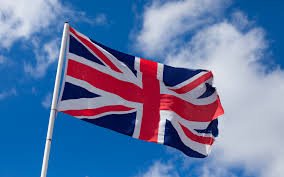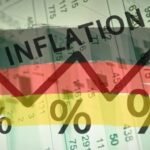According to the inflation report released by the National Bureau of Statistics (NBS) on Tuesday seen by Investogist, the Consumer price index (CPI) which measures the average change over time in prices of goods and services consumed by people for day-to-day living (inflation rate) rose by 12.26% year on year in March 2020. This is the highest rate recorded by the country in 23 months.
This March inflation figure represents a 0.06 increase when compared to 12.20% recorded in February 2020. This is the 7th consecutive increase in inflation rate. The rise in inflation figures is largely attributed to border closures which started in August 2019.
- Read also First Bank Holdings Plc Reports Huge Profit for Q1 2020
- Reasons Behind the Record Fall in Oil Price
According to National Bureau of Statics, “The lock down in Abuja, Lagos and Ogun States and various major disruptions in normal economic activity in several States since then, started in April 2020 and accordingly would not have any major impact on March 2020 Inflation which this report focuses on”.
The urban inflation rate increased by 12.93 percent (year-on-year) in March 2020 from 12.85 percent recorded in February 2020, while the rural inflation rate increased by 11.64 percent in March 2020 from 11.61 percent in February 2020.
The composite food index rose by 14.98 percent in March 2020 compared to 14.90 percent in February 2020. This rise in the food index was caused by increases in prices of Bread and Cereals, Fish, Potatoes, Yam and other tubers, Oils and fats, Vegetables, and Fruits.
In March 2020, all items inflation on year on year basis was highest in Bauchi (15.55%), Niger (14.04%) and Kebbi (13.90%), while Lagos (10.82%), Abuja (10.19%) and Kwara (9.94%) recorded the slowest rise in headline Year on Year inflation.
In March 2020, food inflation on a year on year basis was highest in Sokoto (16.81%), Edo (16.63%) and Ogun (16.39%), while Jigawa (13.69%), Bauchi (13.40%) and Lagos (13.06%) recorded the slowest rise.
According to NBS the food items with highest increases were oil & fats, fish, vegetables, fruits, bread and cereal, potatoes, yam and other tubers.
Increase in inflation rate means that on average, people spend more money than they use to on the items they use on daily basis. This means that you will buy less with same amount of money which implies that the value of money is reduced by rise in inflation rate. This reduction in value of money also affects cash assets especially the cash held in bank accounts.
Seven consecutive rise in inflation rate is not good for the economy. However, with international flights grounded and Covid-19 lockdown imposed in Lagos state, Ogun state and FCTA as well as movement restrictions in several states across the country, it is hard to foresee a decline in April inflation rate.
Written by
Ifunanya Ikueze.























































